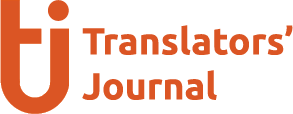
What if language barriers no longer existed?
That would be a world where critical information, legal aid, and humanitarian efforts reached everyone, regardless of language.
This is no utopia—rather, it’s a reality that volunteer translators help create.
By offering your skills and time, you can play a crucial role in bridging language gaps and making a meaningful impact on communities worldwide.
But the benefits of volunteer translation go beyond helping others. It’s also a powerful way to develop your professional skills, gain industry experience, and expand your network.
In this article, we’ll explore:
- The benefits of volunteer translation
- Where to find opportunities
- How to get started
- How volunteer work can lead to paid opportunities
Whether you’re looking to sharpen your skills or make a difference, this guide will help you navigate the world of volunteer translation effectively.
What is Volunteer Translation?
Volunteer translation means using your language skills to translate documents, resources, or messages—usually for non-profits, NGOs, or grassroots initiatives—without financial compensation.
But don’t let the word “volunteer” fool you. It’s high-impact, high-value work. You’re not just translating words—you’re delivering dignity, clarity, and access.
Why Volunteer as a Translator?
If you’re passionate about language and writing, volunteering as a translator could be your first step toward becoming a professional in the field.
Volunteering as a translator gives you purpose and professional growth. You’ll:
- Translate real-world materials for causes that matter
- Work across humanitarian, legal, medical, and tech domains
- Gain portfolio pieces that impress real clients
- Build industry connections and collect testimonials
- Learn from seasoned translators and editors
And most importantly—very likely you’ll feel good doing it.
Benefits of Volunteering as a Translator
Here’s what you really get when you translate for a cause:
- Sharpen Your Skills Like a Pro
Real projects = real growth. You’ll work on documents that stretch your vocabulary, test your speed, and teach you how to adapt tone and register like a pro. Working on diverse projects strengthens your ability to handle various translation tasks, setting you apart in the competitive freelance landscape. - Get Actual Experience That Matters
From legal documents to medical reports, you’ll touch projects that mirror what clients will eventually pay you for. It’s a pressure-free, high-reward training ground. You will:- Work with different clients and organizations
- Understand industry-specific terminology
- Identify your areas of interest and expertise
- Develop the versatility required for freelance work
- Build a Portfolio That Speaks for You
Show, don’t just tell. Volunteer work gives you permission to say, “Here’s what I’ve done,” instead of “Here’s what I could do.” This gives you a strong portfolio that is crucial for attracting clients. - Learn From the Experts
You’ll collaborate with veteran translators, editors, and PMs. It’s free mentorship, and their feedback will fast-track your development. Learning from industry professionals helps refine your work and avoid common pitfalls. - Expand Your Professional Network
Working on volunteer projects allows you to connect with fellow translators, project managers, and potential clients. You will neet industry insiders and get a chance to build trust. Make friends. Many volunteers land referrals, gigs, or full-time jobs through these circles. - Attend Events
Volunteer organizations often host meetups, workshops, and webinars. Get in the room. Learn. And maybe find your next client. Remember these events provide opportunities to:- Meet like-minded professionals
- Exchange ideas and best practices
- Stay updated on industry trends
- Discover new business opportunities
- Get Glowing Recommendations
If you show up and deliver quality, you’ll walk away with testimonials that make clients take notice. A strong reputation within the volunteer community can lead to valuable referrals and recommendations. - Translate for a Cause You Love
One of the most fulfilling aspects of volunteer translation is contributing to a cause that aligns with your values. Whether it’s humanitarian aid, human rights, or environmental protection, your language skills can help amplify important messages and initiatives. Pick a mission that excites you—whether it’s climate justice, refugee support, or open-source tech. Let your values guide your voice. - Feel the Fulfillment
Giving your time and expertise to meaningful causes can provide a deep sense of personal satisfaction. There’s a deep, grounded joy in knowing your words helped someone understand, survive, or thrive. You’ll sleep better at night. - Be Part of Global Change
Your work may help provide access to critical information, support education, and promote cross-cultural understanding. You’re not just helping people—you’re shaping systems. Translation is access. Translation is equity.
What Kind of Work Can You Do as a Volunteer Translator?
Volunteer translators handle real content—not fluff. You’re translating the stuff that moves missions forward and keeps communities informed.
Volunteer translators work on a wide variety of materials, including:
- Training Materials – Manuals, slides, handbooks for workshops and volunteer onboarding
- Reports – Research summaries, impact assessments, case studies
- Documents – Legal forms, medical records, financial papers, policies
- Media Content – Articles, blog posts, videos, and even social media captions
- Subtitles & Captions – For documentaries, educational videos, and outreach campaigns
Where to Volunteer Your Translation Skills
The need is everywhere. The key is to pick a space that aligns with your skills and your soul. Here’s where to start:
NGOs and Humanitarian Organizations
Non-profits working in health, human rights, disaster relief, and education need help translating everything from internal reports to outreach materials. Notable organizations include:
- Translators without Borders – Trusted, global, and respected
- Doctors Without Borders (MSF) – Medical-focused content
- Amnesty International – Human rights advocacy
Global Institutions
International bodies need translators to support missions across continents. Look into:
Tech & Open Source Projects
If you’re into tech, help localize tools and platforms that change the game for people worldwide. Some starting points:
- Mozilla – Firefox and other open-source projects
- WordPress – The world’s most used website platform
- Ubuntu – Making Linux accessible to all
How to Find the Right Opportunity
The best way to find volunteer translation opportunities is to research organizations that align with your interests and skills. Many non-profits and international organizations actively seek volunteer translators. You don’t need to wait for an invitation. Start hunting, and be strategic about it. Here are some places to look:
Websites for Volunteer Translators:
- Translators without Borders – Humanitarian and crisis translation
- UN Volunteers – Translation opportunities for UN projects
- TED Translators – Translating TED Talks into multiple languages
- Global Voices – Translating citizen journalism
Applying for Volunteer Roles
Once you’ve found an opportunity that interests you, take these steps to increase your chances of being selected:
- Match Your Skills with the Organization’s Needs
- Assess your language proficiency and subject matter expertise.
- Choose projects that align with your strengths and specialization.
- Identify Causes That Align with Your Values
- Work with organizations whose missions resonate with you.
- Passion for the cause can enhance motivation and commitment.
- Assess the Credibility of Volunteer Organizations
- Research the organization’s impact, reputation, and ethical standards.
- Avoid projects that exploit volunteers without real social benefits.
Success Stories
Translators Who Transitioned from Volunteer to Professional Work
Some of the most in-demand translators today? They got their start with free work done right. Organizations often turn to trusted volunteers when professional roles open up. In other words: show up, and the doors open.
When I was a student, I translated letters for orphans in Palestine and Bosnia. That experience shaped my skills and gave me direction. Today, I work with global orgs on humanitarian content.
— Florence Fatouma AFAGNIBO, Knowledge Management and Communication Expert, United Nations
I started with volunteer gigs at the UN, Coursera, and Translators without Borders. That free work opened the door to my first full-time job in translation. – Mahmud Alam, Translator & Writer (Bangla, English), Entrepreneur
Leveraging Volunteer Experience in Job Applications
You’ve done the work—now use it. Here’s how to make your experience count: Here’s how to showcase it effectively:
- Resume: List your volunteer experience under the “Experience” or “Volunteer Work” section. Specify the organization, the types of materials you translated, and any measurable impact (e.g., “Translated 50+ reports for a global humanitarian organization, improving accessibility for international stakeholders”).
- LinkedIn Profile: Add your volunteer translation roles under “Experience” or “Volunteer” sections. Use clear descriptions and keywords relevant to your target job. Add roles to your “Experience” or “Volunteer” section. Drop key terms like medical translation, legal, localization, etc.
- Portfolio: Include case studies of your volunteer projects, highlighting the challenges you tackled, the skills you used, and the outcomes. Include snapshots of projects. Break down your process. Show range and complexity.
- Cover Letters: Mention your volunteer work when relevant to the job you’re applying for. Emphasize the skills you developed. Volunteer experience proves initiative, adaptability, and depth. Use it to show you’re already working in the field—even without the paycheck (yet).
Testimonials: Your Free Marketing Fuel
Positive feedback from project managers, nonprofit leaders, or clients can help establish trust and credibility. Here’s how to gather and use testimonials effectively:
- Request Feedback: After completing a volunteer project, ask for a testimonial highlighting your accuracy, professionalism, and reliability. Provide a few prompts to make it easy for them (e.g., “How did my translation help your organization?”).
- Showcase Testimonials: Display them on your website, LinkedIn recommendations, or freelancer profiles (Upwork, Fiverr, etc.). Choose testimonials that emphasize different strengths, such as industry expertise, speed, or attention to detail.
- Use in Marketing: Incorporate strong testimonials into social media posts, email pitches, and proposals to reinforce your credibility.
- Video or Written Testimonials: If possible, ask for a short video testimonial, as video content builds even more trust. If written, ensure it’s well-structured and concise.
Volunteering in Crisis Situations: The Role of Translators in Emergencies
Volunteering in crisis situations gives translators a chance to make a real impact when it’s needed most. In emergencies, your language skills can help save lives and bridge communication gaps. Whether it’s disaster relief or public health, translators play a vital role in ensuring accurate information reaches those who need it.
- Disaster Relief and Refugee Crises
Translators help aid workers communicate with affected communities. In emergencies, accurate and timely translations are essential for effective response.
- Public Health Emergencies
Translators play a key role in sharing important health information in different languages. This includes translating messages during pandemics and medical aid efforts.
Best Practices for Ethical & Culturally Sensitive Volunteer Translation
- Understand Cultural Nuances
- Recognize that misinterpretations can lead to serious consequences in humanitarian efforts.
- Ensure cultural adaptation is just as important as linguistic accuracy.
- Be Aware of the Impact of Mistranslations
- Learn from past case studies where mistranslations caused issues in aid work.
- Prioritize accuracy and context to avoid misunderstandings that could disrupt efforts.
- Collaborate with Native Speakers and Cultural Consultants
- Work closely with native speakers to capture the true meaning of the message.
- Consult cultural experts to ensure your translation is respectful and relevant to the target community.
- Use Inclusive and Respectful Language
- Tailor language to fit the cultural and social context of the target community.
- Always use language that is inclusive and sensitive to local values.
- Ensure Accuracy and Confidentiality
- Follow professional translation standards, even when volunteering.
- Adhere to confidentiality agreements and respect data privacy policies to protect sensitive information.
FAQ – Volunteering as a Translator
1. What types of translation volunteer opportunities are available?
You can volunteer for various projects, including humanitarian aid, legal translations, health information, educational materials, and more. Organizations like Translators Without Borders, the United Nations, and local NGOs often seek volunteer translators.
2. Do I need professional experience to volunteer as a translator?
While experience can be helpful, many volunteer opportunities are open to both beginner and experienced translators. It’s a great way to gain practical experience and build your portfolio, especially if you’re new to the field.
3. How do I find volunteer translation opportunities?
You can find volunteer opportunities through organizations like Translators Without Borders, UN Volunteers, or local nonprofits. Websites such as ProZ, VolunteerMatch, and Translators Café also list volunteer opportunities regularly.
4. Will volunteering as a translator help me find paid work?
Yes! Many professionals transition from volunteer work to paid positions. Organizations often prioritize volunteers for paid roles when they become available, and your volunteer experience helps build a solid portfolio and network.
5. What ethical considerations should I keep in mind while volunteering?
Ensure cultural sensitivity and avoid mistranslations that could have negative impacts. Work closely with native speakers or cultural consultants and always maintain confidentiality and respect privacy agreements.
6. Do I need to be fluent in multiple languages to volunteer?
While fluency in multiple languages can be beneficial, many volunteer opportunities focus on specific language pairs. Choose projects that align with your strengths and language expertise.
7. Is volunteer translation work recognized in my professional portfolio?
Absolutely! Volunteer translation projects are valuable for building your portfolio, demonstrating your skills, and showcasing your commitment to social causes. Include them on your resume, LinkedIn, or personal website.
8. How much time should I dedicate to volunteer translation?
The time commitment can vary depending on the project. Some opportunities require only a few hours a week, while others may need more involvement. Choose projects that fit your schedule and allow you to maintain balance with other commitments.
9. Can I volunteer for translation if I’m working full-time?
Yes! Many volunteers work full-time jobs while contributing their translation skills in their spare time. Choose flexible projects that allow you to contribute according to your availability.
10. What are the benefits of volunteering as a translator?
Volunteering can enhance your translation skills, help you gain diverse experience, build a strong portfolio, expand your professional network, and open doors to future paid opportunities.
Are You Looking for Jobs in the Language Industry?
If you are looking for in-house jobs, you should check out Weekly Job Window.
Every week, we handpick in-house jobs for translators, interpreters, linguists, writers, editors, and localization professionals so you can stay updated without searching hundreds of listings spread across the internet.
You can access the latest jobs of the current week here. Feel free to bookmark it as well.
To get the full list every week to your inbox, subscribe.



